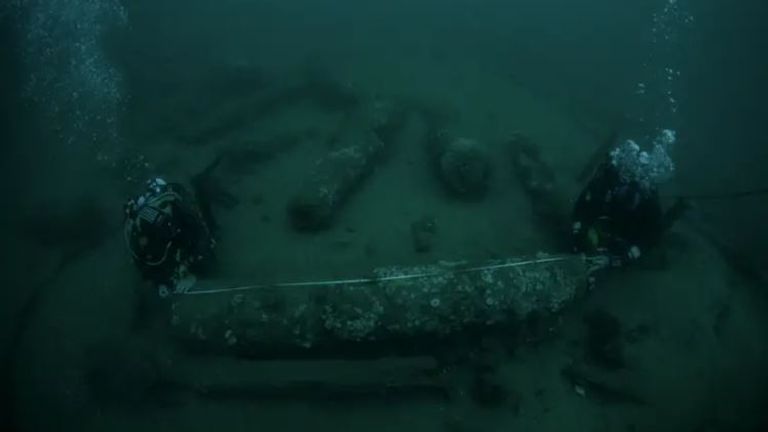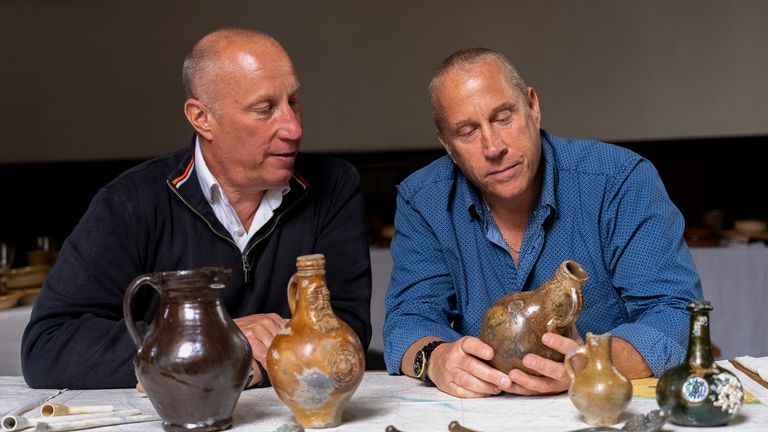[ad_1]
The wreck of a royal warship which sank in 1682 while carrying the future king James Stuart has been discovered off the coast of Norfolk.
The HMS Gloucester ran aground some 28 miles off Great Yarmouth following a dispute between Stuart, then the Duke of York, and the ship’s pilot James Ayres about navigating the Norfolk sandbanks.
It sank within an hour of the strike, at 5.30am on 6 May, killing around 130 to 250 crew and passengers.
James Stuart went on to reign as King James II of England and Ireland and James VII of Scotland from 1685 until 1688, when he was deposed in the Glorious Revolution.
The wreckage of the ship was found by brothers Julian and Lincoln Barnwell, who worked with their late father Michael and two friends including James Little, a former Royal Navy submariner and diver.
The brothers found the site in 2007 but due to the time taken to confirm the identity of the ship and the need to protect an ‘at risk’ site, which lies in international waters, it is only now that its discovery can be made public.
The ship was split down the keel and the remains of the hull were submerged in the sand.
Lincoln Barnwell said during the team’s fourth dive season looking for the shift they felt doubtful that they would find HMS Gloucester, but things soon changed.
He said: “On my descent to the seabed, the first thing I spotted were large cannon laying on white sand, it was awe-inspiring and really beautiful.
“It instantly felt like a privilege to be there, it was so exciting.
“We were the only people in the world at that moment in time who knew where the wreck lay. That was special and I’ll never forget it.”
It has been described by a historian as the most important maritime discovery since the Mary Rose, the warship from the Tudor navy of King Henry VIII, which sank in 1545 and was raised in 1982.
Maritime history expert Prof Claire Jowitt, of the University of East Anglia (UEA), said: “The discovery promises to fundamentally change understanding of 17th-century social, maritime and political history.”
She added that teams will also try to establish who else died when the ship sank.
James Stuart barely survived having delayed abandoning ship which cost the lives of many, who due to protocol could not abandon the ship before royalty.
[ad_2]









